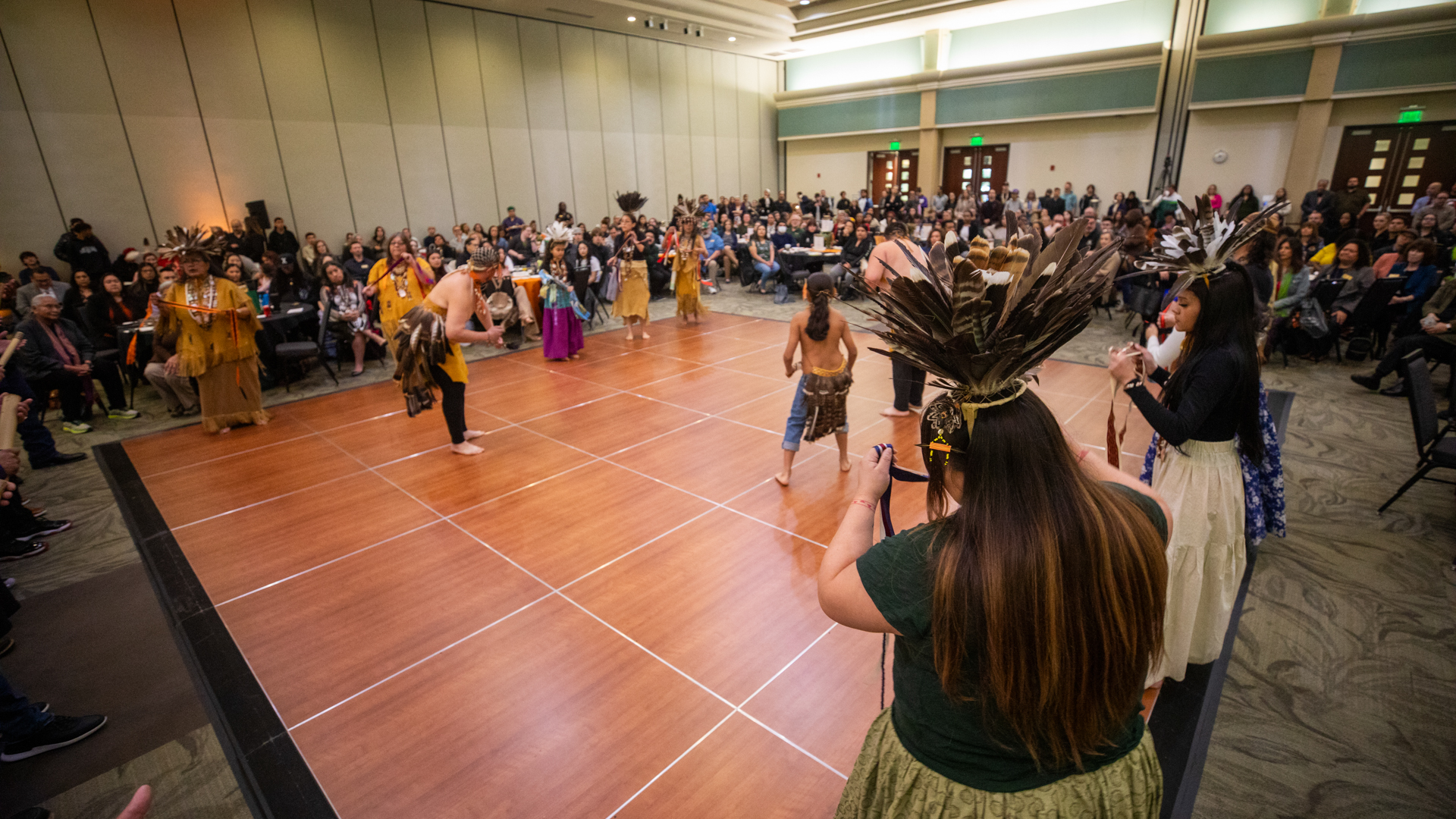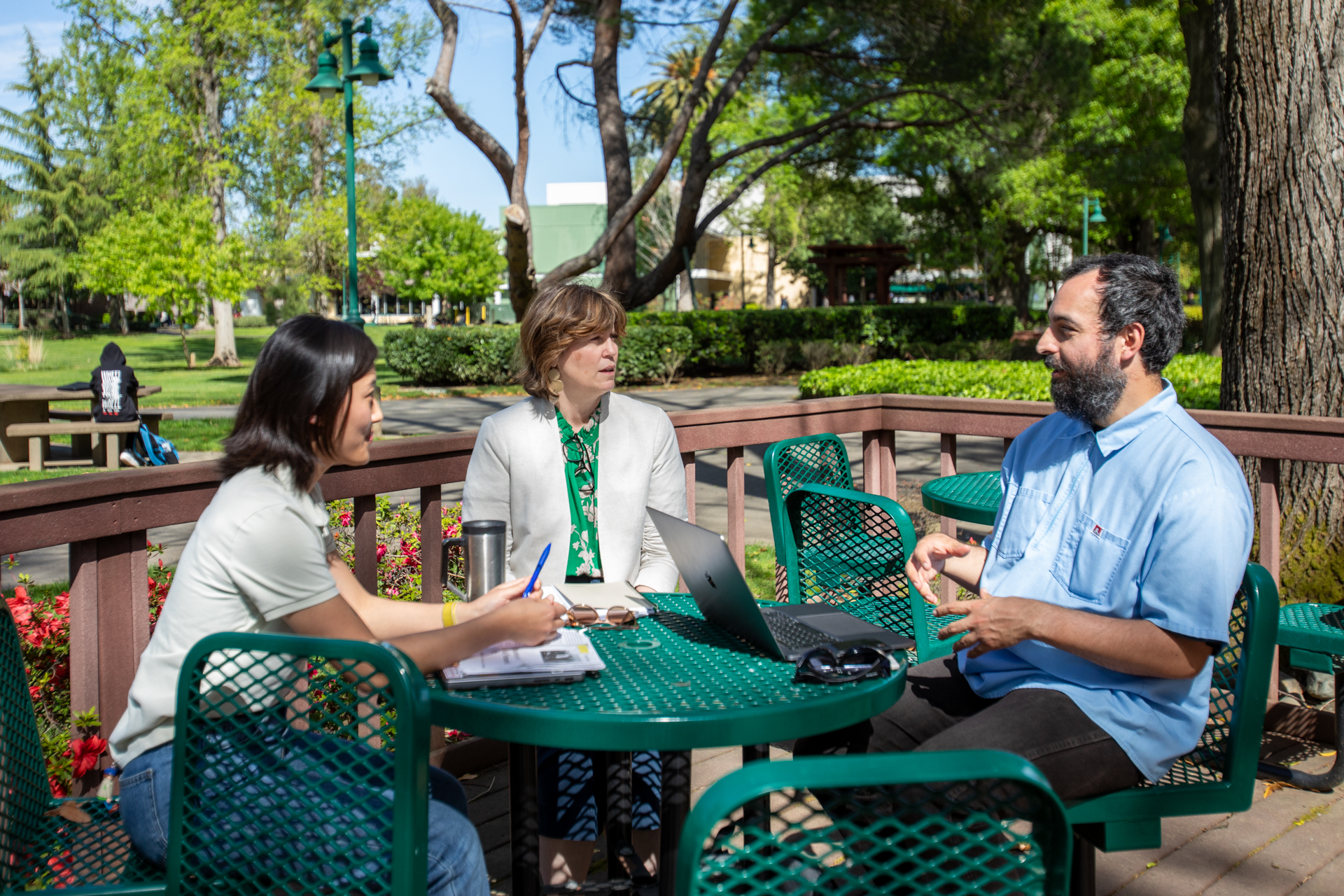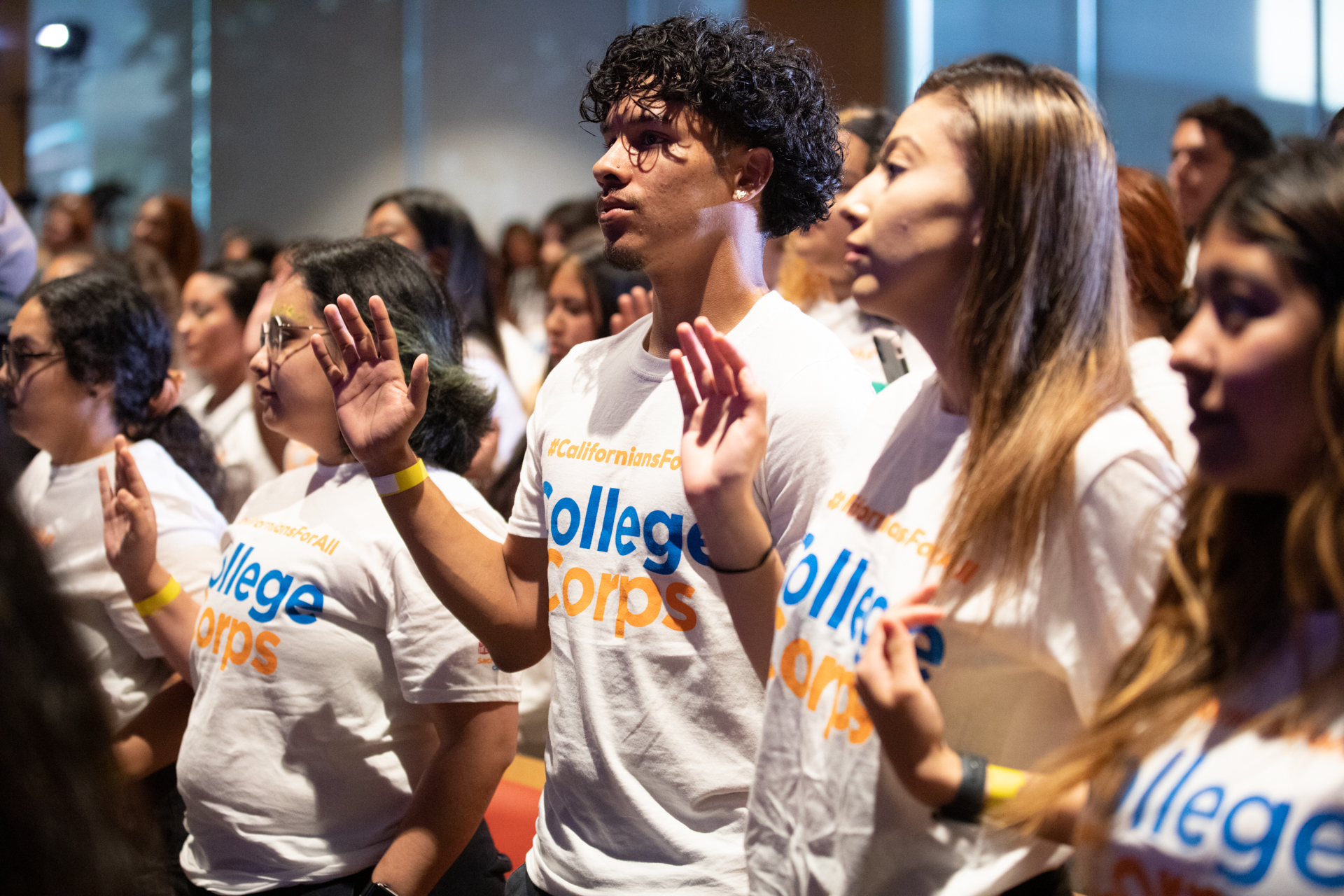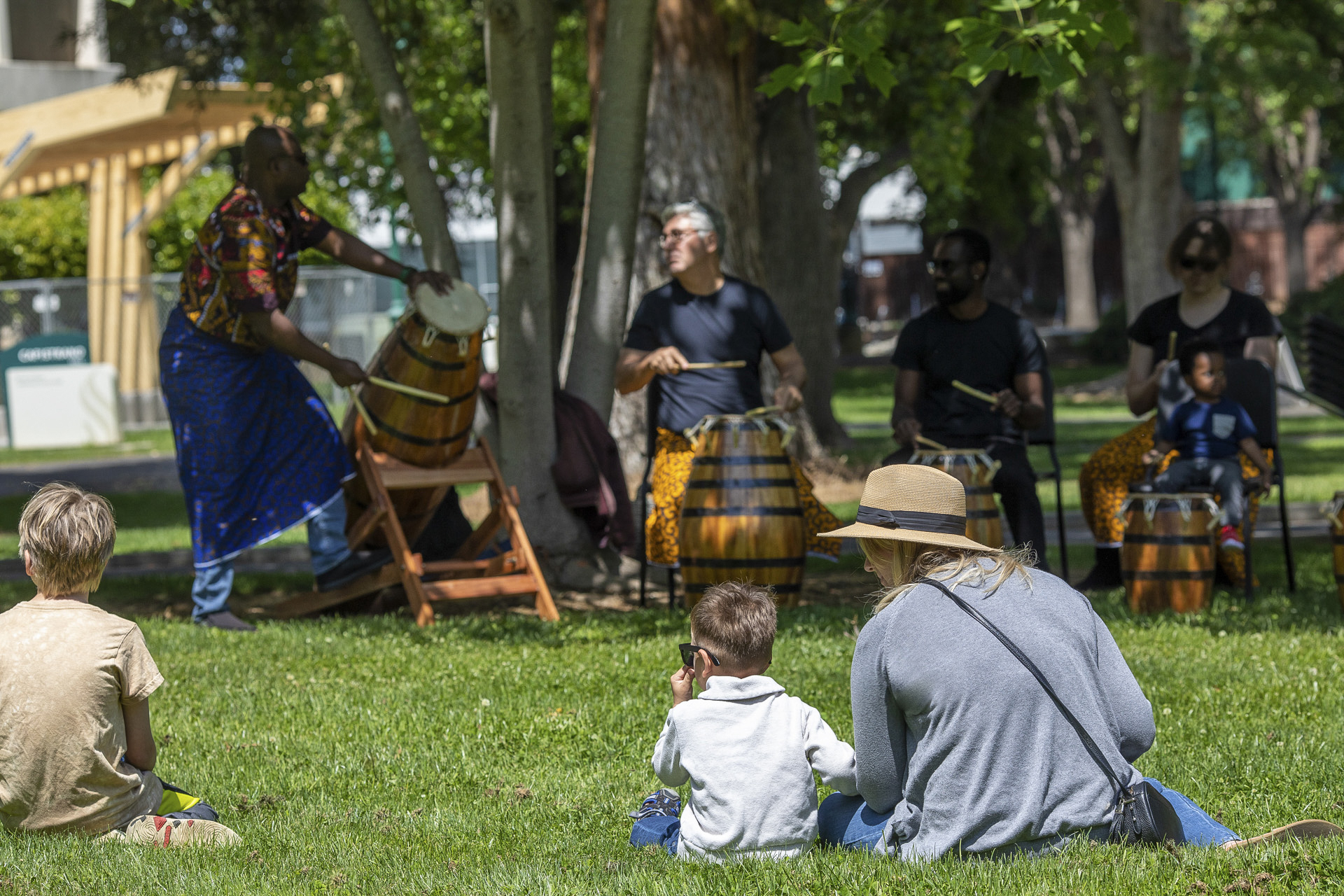Story Content
Sac State partners with California Tribal College to boost Native American student success

April 16, 2024
Sacramento State and the California Tribal College are teaming up to help more Native American students succeed in higher education.
Beginning this month, the tribal college’s administration will be based at Sac State, where Native students will receive campuswide support as they work toward their undergraduate and graduate degrees.
The new alliance will help pave the way for academic success for more Native students, said Sac State President Luke Wood.
“We want to be the No. 1 college for serving Native American students,” he said.
In addition, Sac State administrators and faculty members will provide intensive mentorship to the tribal college as it seeks to become an accredited institution that can independently award bachelor’s and master’s degrees. That process could take seven years or longer, said Mark Wheeler, Sac State’s senior advisor to the President.
“We will provide them with access to mentoring and other resources, helping them develop the capacities they need to earn accreditation,” Wheeler said. “They will learn about student affairs, outreach and enrollment, student life, finance, academic affairs and much more.”
At an April 18 meeting with tribal leaders from across the state on Thursday, Wheeler said that the partnership was unique. “No other four-year college or university is working with the California Tribal College to secure their accreditation,” he said.
During the meeting, CTC Regent Mikela Jones said the college is pleased to work with Sac State toward better futures for Native American students.
“Sac State is a perfect home for our tribal students,” Jones said.
Tribal colleges typically are located on or near Native American reservations and offer culturally relevant associate degrees and certificates in such areas as tribal leadership and governance.
“Sac State’s leadership has shown a willingness to bring us to the table and sincerely work with us. It’s a breath of fresh air.” -- Thomas Lozano, California Tribal College deputy executive director.
The California Tribal College, previously based in Woodland, has served more than 700 students across the state, administrators said. At Sac State, its programs and resources will be open to all students.
“Academic opportunity definitely is needed in California for Native Americans,” said Juliet Maestas, the college’s interim president. “The partnership with Sac State offers an opportunity to open up those doors.”
The college and Native students across the state and nation will gain access to a wealth of additional resources from Sac State, including its Esak’timá Center for Native students and a Native American Studies program.
As a federally designated Asian American and Native American Pacific Islander Serving Institution, the University also receives additional grant funding to support student success.
The partnership is part of a broader effort by Sac State to engage Native American communities. In addition to the opening of the Esak’timá Center, the University has recently taken positive steps to work with tribal nations to return Native American cultural items in its possession that have not yet repatriated.
“Sac State’s leadership has shown a willingness to bring us to the table and sincerely work with us,” said Thomas Lozano, deputy executive director of the tribal college. “It’s a breath of fresh air.”
More than 200 of the University’s students identify as American Indian, said Native Success Coordinator Rena Horse. Those numbers mirror national data, which show that less than 1% of college students in the country are American Indian or Alaska Native. Only about 15% of Native Americans had earned a college degree as of 2021.
“We want to work with students, their families and tribes to build trust and to grow those numbers,” said Maestas. “We would like to be the bridge that connects our students to four-year universities.”
Western education systems often lack an understanding of Native American culture, and many schools that serve students on reservations have limited resources, according to the American Indian Education Fund.
Wheeler said Sac State has a “profound moral mission” to better serve the Native American community.
“The mission of the CSU is to educate the people of California,” he said. “Native Americans in California have suffered genocide and other horrific losses, and the colonial system we have imposed on them has made it difficult to pursue opportunities in higher education. We have a duty to help repair the damage.”
For more information about the California Tribal College and its alliance with Sac State, email info@CaliforniaTribalCollege.com.
Editor's Pick
Media Resources
Faculty/Staff Resources
Looking for a Faculty Expert?
Contact University Communications
(916) 217-8366
communications@csus.edu


